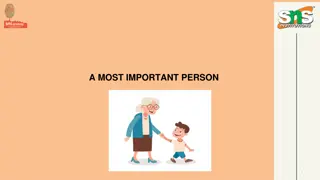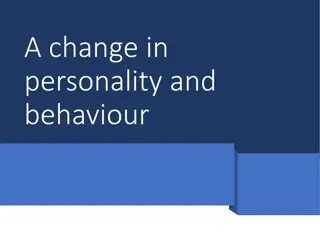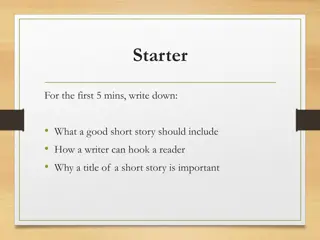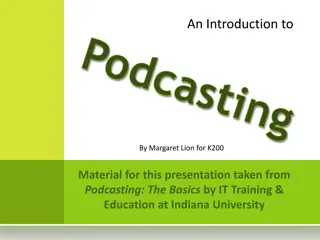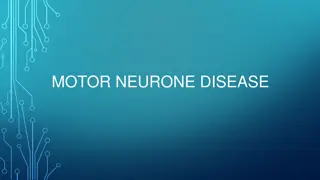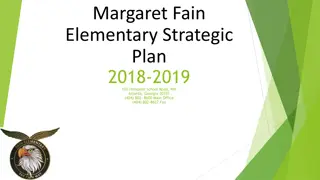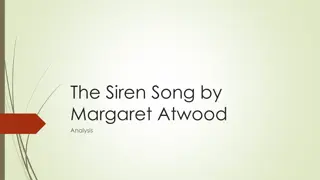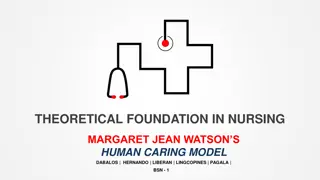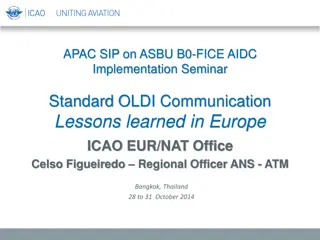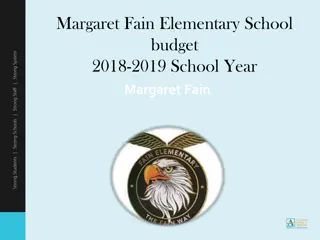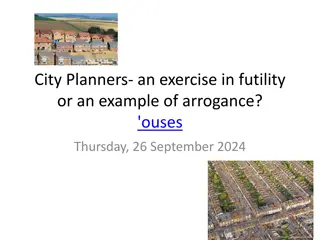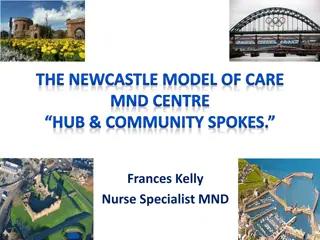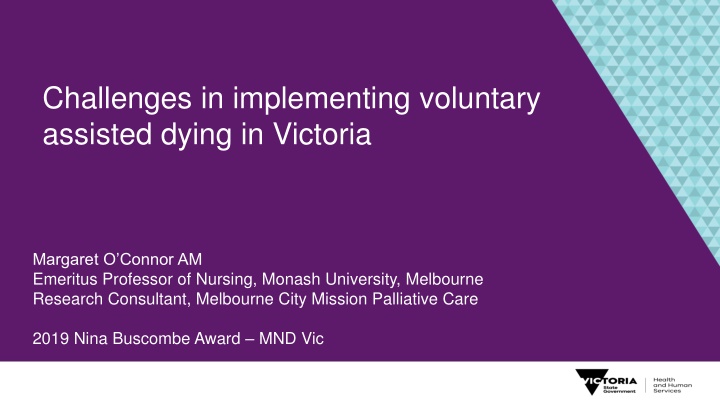
Challenges and Developments in Voluntary Assisted Dying in Victoria
Explore the challenges of implementing voluntary assisted dying in Victoria, including eligibility criteria, legal aspects, and related developments. Learn about the Voluntary Assisted Dying Act of 2017, eligibility requirements, and key considerations for accessing this end-of-life option. Discover the social and legal issues surrounding voluntary assisted dying as discussed by experts and decision-makers in Victoria.
Download Presentation

Please find below an Image/Link to download the presentation.
The content on the website is provided AS IS for your information and personal use only. It may not be sold, licensed, or shared on other websites without obtaining consent from the author. If you encounter any issues during the download, it is possible that the publisher has removed the file from their server.
You are allowed to download the files provided on this website for personal or commercial use, subject to the condition that they are used lawfully. All files are the property of their respective owners.
The content on the website is provided AS IS for your information and personal use only. It may not be sold, licensed, or shared on other websites without obtaining consent from the author.
E N D
Presentation Transcript
Challenges in implementing voluntary assisted dying in Victoria Margaret O Connor AM Emeritus Professor of Nursing, Monash University, Melbourne Research Consultant, Melbourne City Mission Palliative Care 2019 Nina Buscombe Award MND Vic
pop 25.5 m Victoria pop 6.3.m
related developments in Victoria Vic. Charter of Human Rights (2016) http://www.humanrightscommission.vic.gov.au/upcoming- changes-to- medical- decision-making-laws End of Life & Palliative Care Strategy (2016) www2.health.vic.gov.au/hospitals- and- health-services/patient-care/end-of-life-care/palliative-care/end-of-life-and- palliative-care-framework Powers of Attorney Act 2014 (2015) http://www.publicadvocate.vic.gov.au Medical Treatment Planning & Decisions Act 2016 (2018) http://www.publicadvocate.vic.gov.au
Voluntary Assisted Dying in Vic 2016 - Social & Legal Issues Parliamentary Committee on End of Life Choices consultation, public hearings, international visits. 49 recommendations community-palliative care (29), advance care planning (18), assisted dying (1) 2017 - Ministerial Advisory Panel (MAP) consultation, interim & final reports Parliamentary debate & vote Oct-Nov 2017 4 2018/19 implementation
Voluntary Assisted Dying Act 2017 The Act provides for & regulates access to voluntary assisted dying (voluntary assisted dying). Like any other clinical intervention - practice considerations to be addressed. The Act: 1. establishes clear eligibility criteria 2. steps through a detailed request and assessment process, including requirements for medical practitioners sets up a voluntary assisted dying permit process which authorises the prescribing & dispensing of a voluntary assisted dying substance 3. governance - establishes the Voluntary Assisted Dying Review Board (Review Board) provides for a range of additional safeguards including substance monitoring, practitioner protections, offences, and a five year review.
eligibility criteria to access voluntary assisted dying, a person must meet all the following: be aged 18 years or more; and be an Australian citizen or permanent resident; and be ordinarily resident in Victoria for at least 12 months; and have decision-making capacity in relation to voluntary assisted dying; and be diagnosed with a disease, illness or medical condition, that: is incurable; and is advanced, progressive and will cause death; and is expected to cause death within weeks or months, not exceeding 6 months (12 months for a neurodegenerative condition); and is causing suffering that cannot be relieved in a manner the person considers tolerable.
request and assessment a person must make three separate, formal requests: the person makes their first request to a medical practitioner (who becomes the co-ordinating medical practitioner if they accept) the person undergoes a first assessment by the co-ordinating medical practitioner the person undergoes a consulting assessment by a consulting medical practitioner the person makes a written request, which is signed by two independent witnesses the person makes a final request to the co-ordinating medical practitioner the person s final request must be made at least 9 days after the day on which they made their first request (exception if they are likely to die within that time)
if the person is eligible co-ordinating medical practitioner applies for a voluntary assisted dying permit from DHHS to prescribe the voluntary assisted dying substance (opportunity to ensure compliance with the request & assessment process) if the person is physically able to self-administer & digest the substance, the practitioner must apply for a self-administration permit (if the person is not physically able to self-administer or digest the substance - practitioner administration permit) administration by a medical practitioner will only occur in very limited circumstances to ensure those physically unable to self-administer are not discriminated against.
roles of medical practitioners the roles of medical practitioners are clearly defined: co-ordinating medical practitioner supports the person, undertakes the first assessment, receives the requests, and is responsible for reporting (whole process) consulting medical practitioner provides a consulting assessment (only) both practitioners must ensure the person is properly informed of all treatment and care options, including palliative care and likely outcomes each practitioner must undertake an independent assessment to form a view as to whether: the person meets the eligibility criteria the person understands the information provided the person is acting voluntarily and without coercion; and the person s request is enduring
which medical practitioners can participate? only specialist medical practitioners (including GPs) can conduct the assessment process and prescribe the substance. between them (co-ordinating and consulting medical practitioner) must have: at least five years post-fellowship experience experience and expertise in the person s disease, illness or medical condition both medical practitioners must: be a Fellow of a specialist Medical College (inc College of General Practitioners) Complete (on-line) training before conducting an assessment (legal & practical requirements of voluntary assisted dying).
health practitioners a health practitioner not required to participate. Conscientious objection enshrined in Vic law a health practitioner must not initiate the discussion about voluntary assisted dying with a patient while providing a health service there are protections for health practitioners & paramedics who act in good faith & in accordance with the Act - this includes not providing life-sustaining treatment that has not been requested if they believe the person has accessed voluntary assisted dying range of offences, including to induce a request or self-administration falsifying records or making a false statement providing or administering a voluntary assisted dying substance without a permit
conscientious objection the right to refuse to do any of the following: 1. to provide information about voluntary assisted dying 2. to participate in the request & assessment process 3. to apply for a voluntary assisted dying permit 4. to supply, prescribe or administer a voluntary assisted dying substance 5. to be present at the time of administration of a voluntary assisted dying substance 6. to dispense a prescription for a voluntary assisted dying substance Voluntary Assisted Dying Act 2017, p.13
reporting requirements mandatory reporting to the Voluntary Assisted Dying Review Board following the: first assessment (co-ordinating medical practitioner); consulting assessment (consulting medical practitioner; final review, following third request (co-ordinating medical practitioner); dispensing of the substance (pharmacist); disposal of the substance (pharmacist); administration of the substance by a co-ordinating medical practitioner. reporting forms are detailed in Schedule to the Act Voluntary Assisted Dying Review Board reports to Parliament 6 monthly
implementation 2018-19 implementation - within the context of existing care available for people at the end of their life. Implementation Taskforce: models of care and organisational protocols (to assist health services to respond to the Act) guidance for health practitioners(which step practitioners through the legal and clinical requirements) training for medical practitioners (focused on the legal and clinical requirements) medication protocols(provided to participating medical practitioners setting out exactly what to prescribe) consumer and community information(for a range of levels and situations).
Implementation Taskforce: projects and governance Implementation Taskforce Model of care /organisational protocol development Working Group Community /consumer information development Working Group Approved assessment training Working Group Medication protocol development Working Group Clinical guidelines development Working Group VAD Review Board establishment (Secretariat) VAD EOLCV gap analysis (Secretariat) Regulations (Secretariat)
model of care Pathway A:Single service eg tertiary metropolitan health services, regional and sub-regional health services. suite of services and staff with sufficient expertise to provide voluntary assisted dying within their existing health service or network. Pathway B: Partnership service eg smaller metropolitan health services, local, small rural and multi-purpose services that currently provide care to people who are at the end of their life. support and facilitate the request and assessment process, will need to establish partnerships with other health services and refer people to other services to access appropriate specialists, including general practitioners. Pathway C: Information and support service - health services which do not provide care to people who are at the end of their life, and health services which have chosen not to provide voluntary assisted dying. provide information and/or referrals for people who request voluntary assisted dying and, where appropriate, continue to provide support to these people.
medications medication protocols developed by the Implementation Taskforce prescription required in accordance with the medication protocols the government has established a single statewide pharmacy service at the Alfred Hospital to dispense medications for voluntary assisted dying across Victoria allows for a consistent, safe and controlled process for prescription o dispensing and retrieving of voluntary assisted dying medications and the development of expertise in these medications. o o the range of suitable medications are secured for use in Victoria. medication protocols only available to medical practitioners who complete the voluntary assisted dying training.
clinical challenges for health services health services needed to decide whether or not to provide voluntary assisted dying no compulsion regardless of whether a health service provides voluntary assisted dying, preparation for the legislation: how individual staff respond to questions & requests for information? staff support in managing requests? if voluntary assisted dying will/will not be provided, what is the model of care? staff education & support if voluntary assisted dying is provided?
organisational challenges communication, information education & support for staff & health service clients policies, procedures & guidelines revise/develop familiarity with documentation & process of voluntary assisted dying readiness of systems IT, legal, alerts, tracking of request process, reporting whether patients who request voluntary assisted dying will be referred to other health services, & how this is facilitated how patients requesting access to voluntary assisted dying will be supported
challenges for nurses & other health professionals regardless of clinician perspectives, interactions related to voluntary assisted dying need to be compassionate, respectful, & without judgment individual reflection on personal and professional impact of the Act on their actions individual participation is guided by personal & professional beliefs, local health guidelines & statutory requirements (duty of care) discussions may focus on improving overall quality of life, and may include a request for information about, or access to, voluntary assisted dying voluntary assisted dying is not an alternative to end-of-life/palliative care, which should continue to be offered & may enhance a person s quality of life clinicians need to be prepared to respond to a person expressing concerns about end-of-life care & suffering they are experiencing Voluntary Assisted Dying Navigator roles
summary Voluntary Assisted Dying is for a few, end of life/palliative care for many/most new legislation requires time to become established dissemination of information establishing networks of providers role of the Review Board accountability to the community

